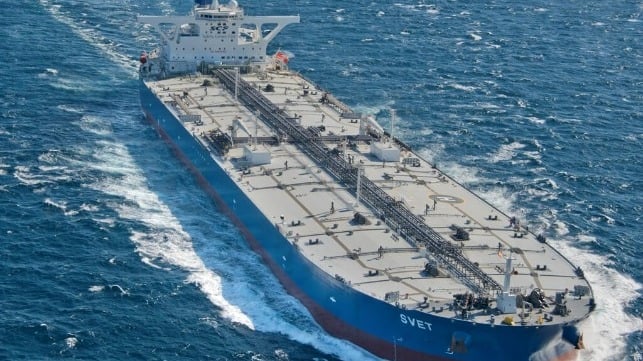To Enforce Sanctions on Russian Energy, U.S. Needs the Global South

As Western policymakers seek to implement financial and trade sanctions on Russia, one thing is clear: engaging with the Global South is essential.
Without fostering dialogue and building trust through consistent engagement, sanctions become less effective. As things stand, many Global South countries are just not complying.
The reasons for non-compliance are complex. They include longstanding historic relationships, maintaining strategic autonomy, domestic challenges from the Covid-19 pandemic and climate change, and economic disruption from the Russia-Ukraine war. These priorities can outweigh concerns about secondary sanctions applied on non-compliers. Yet, they remain poorly understood by Western policymakers, and consequently unaddressed.
As a result, growing ties between Russia and the Global South and their effect on Western sanctions remain overlooked.
Russia has recognised this divergence between the West and the Global South and is attempting to exploit it. It is expanding economic and diplomatic relations with the Global South and working to mitigate effects of Western sanctions. Russia has adopted this strategy before, following the annexation in Crimea.
In Africa, for example, it is exploiting rising economic opportunities and anti-Western sentiment to expand its influence, in part with arms exports. In 2019 to 2023, Russia was the largest arms exporter to sub-Saharan Africa. Its partnerships in the region also extend to energy exports, help with regime security in return for natural resources, and cooperation in information security and fighting terrorism.
Russia encourages Global South countries to use currencies other than the US dollar in oil transactions, so they can to some extent insulate themselves from secondary sanctions. Recent examples include the use of the UAE dirham and the Russian rouble for sales of Russian oil to India and China, respectively. Furthermore, discussions in the 16th BRICS summit in Kazan, Russia, also reignited debates on alternatives to dollar-dominated oil payments. Among them was creating cross-border payment systems to promote local-currency financial transactions between BRICS.
Moreover, Russia is deepening ties with other sanctioned states, such as North Korea and Iran. Imposition of sweeping restrictions on Russia has led it to seek alternatives for supporting its military-industry complex. It has acquired military equipment from North Korea and one-way attack drones from Iran, and supplied oil to North Korea in direct violation of UN Security Council resolutions.
Russia’s growing relationship with North Korea is a particular worry for the world, but not a prominent one for the Global South. Yet some Global South countries risk hosting activities from financial transactions or even supplying dual-use materials that Russia could trade with North Korea.
This is where Western policymakers can intervene. Developing countries would not want to violate UN Security Council sanctions and facilitate the development of weapons of mass destruction. The West can help with capacity-building programmes to strengthen public and private capacity in adhering to international obligations and disrupting evasion.
The West still has strong diplomatic ties with the Global South, providing an opportunity to initiate dialogue and establish a shared understanding of issues. Multilateral platforms such as the G20 serve as forums for promoting collaboration, where the Global South actively participates.
The West should also consider Russia’s limitations in boosting its relations with the Global South. Its ability to maintain long-term support in Africa is debatable. Low attendance at the Russia-Africa summit held in St Petersburg in 2023 suggests its influence has no deep roots. The West cannot take this for granted, however. It must work to displace Russian influence, and in doing so needs to understand and respond to African countries’ priorities.
Finally, the West must focus on bolstering the confidence of Russia’s trading partners to resist de-dollarisation. This could include providing assessment reports and briefing policymakers and business stakeholders of the Global South on the political compromises and economic risks associated with decoupling from the US dollar.
Chandana Seshadri is a research analyst with the Royal United Services Institute.

that matters most
Get the latest maritime news delivered to your inbox daily.
This article appears courtesy of The Strategist and may be found in its original form here.
The opinions expressed herein are the author's and not necessarily those of The Maritime Executive.
